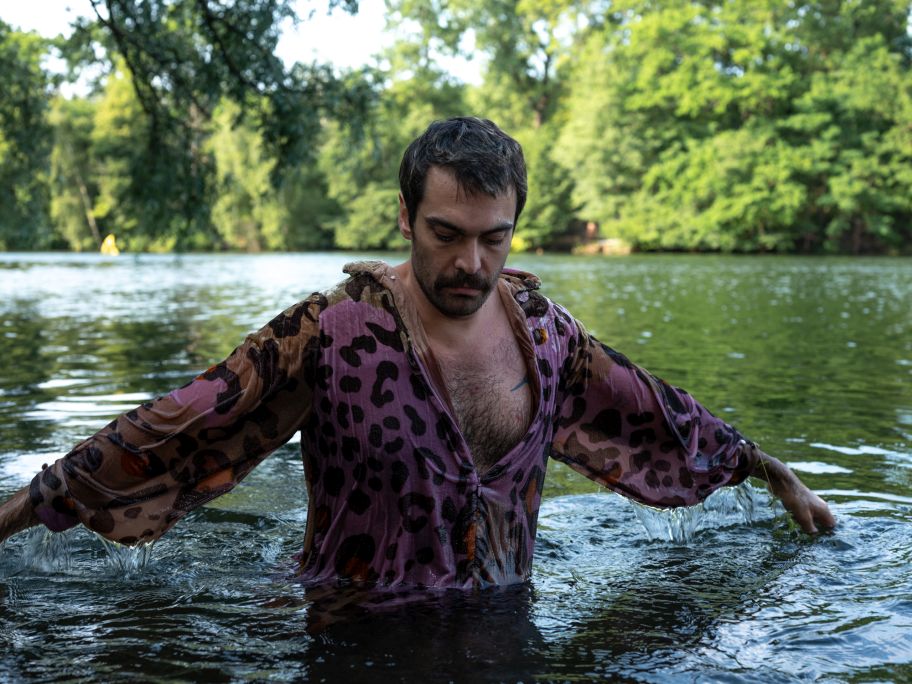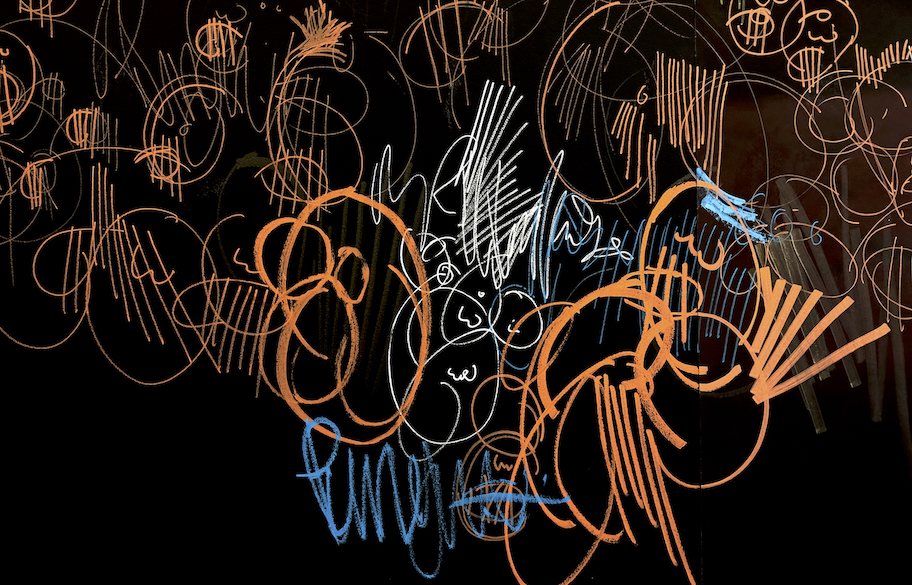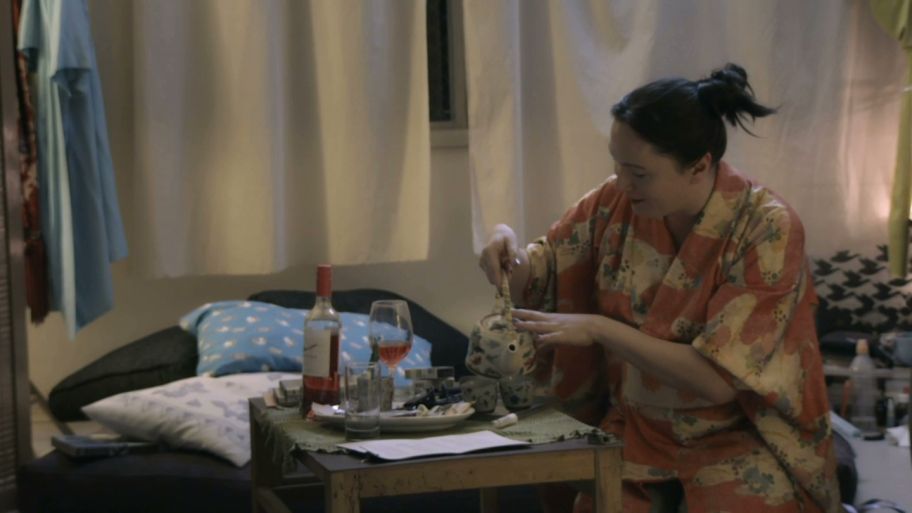Brazil, Film, 2023
Gustavo
Vinagre

Gustavo Vinagre is a filmmaker and documentarian who has written and directed over 14 short- and six feature-length films. Having studied literature at the University of São Paulo in Brazil and film at the EICTV school in Cuba, Vinagre holds a prolific career spanning over 10 years, with films that are known for their vibrant queerness and their intimate approach to image and sound. The award-winning Three Tidy Tigers Tied a Tie Tighter is his first fiction feature film and premiered at Berlinale Forum in 2022.
Between melancholic optimism and pessimistic joy, Three Tidy Tigers points to distinctive elements of Vinagre’s filmography. From the visual fragments of pop culture to the rejection of naturalistic acting styles, the film transitions from a feel-good movieto a portrayal of a hopeful world. The protagonists are confined to their homes due to an unnamed respiratory virus pandemic. Here, domestic space becomes their communal arena for education, labor, and sexuality, while urban space is converted into a site of transitory intimacy, memory, and grief.
The home is a recurring space in his filmography, much of which has been labeled as “apartment films.” Such characterization is a reference to these films’ locations, but also to their pornographically personal vision of a cinema made at the margins of an economic system. It reflects an approach to filming that elaborates its own cinematic expression through the encounter of bodies and images; a modular and relational practice built by the relationships between those rotating inside and outside of the frame. It is within the enclosure of the apartment where the space for intimate connections is opened.
In documentaries such as Divinely Evil (2020), The Blue Flower of Novalis (2018), I Remember the Crows (2017), and Film for Blind Poet (2012), the apartment provides the stage for a portrayal of emotions, sexual fantasies, fetishes, traumas, pain, and desires. It is a theatrical space with no borders separating reality from fiction, or memory from performance. Apartments are procured and decorated, becoming the aestheticized or artificial homes of these characters. The visual insularity is combined with a remarkable approach to the spoken word: it is through depositions, confessions, and performances that individuals and characters become one. These are films resulting from complex layers of recurring collaborations, and while they remain profoundly personal, they also provide a figuration of Brazil and a fragment of its ordinary and political life.
From the interior to the exterior, the work of Gustavo Vinagre is a cinema of poetry and desire where queerness exceeds the realm of representation in order to become part of the fabric of images. A concrete and realist utopia that rejects idealizations. A space where the self and the other are conflated. Or as the celebrated writer Glauco Mattoso claims in Blind Poet: “the reality of others is also my reality.”
Text: Pedro Tinen and Sérgio Silva





